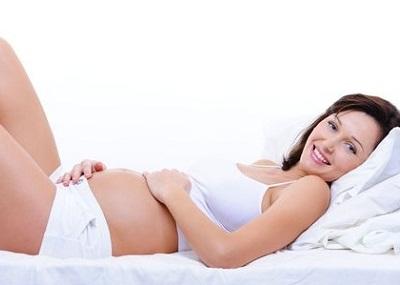
During Pregnancy
Pregnancy is time of great physical and emotional change for women. Everything from the size of her belly to the speed at which her heart beats will change over the nine months leading up to childbirth. It would be an overwhelming experience for you when you get pregnant and there can be nothing more joyous than giving birth to a baby.
The physical changes that take place during pregnancy is a consequence of hormonal imbalances that are quite normal during pregnancy. You may notice changes in your body in the early weeks, closer to the end of pregnancy, or the changes may come and go throughout. Even with the discomforts of pregnancy, many women report feeling healthier than they have ever felt before.
Bloating
You look bloated and it is easily marked after first trimester. Bloating in early pregnancy occurs due to expansion of the uterus to accommodate the baby. Till four months, the normal size of the belly is retained but with fifth month of pregnancy, your belly will protrude out. This is taken quite sportively by women as it symbolizes that they are pregnant. You shop for plus size maternity clothes which is quite an enjoyable experience. You also feel bloated because minor health complications like indigestion, gas and constipation occur during pregnancy.
Body aches
As your uterus expands, you may feel aches and pains in the back, abdomen, groin area, and thighs. Many women also have backaches and aching near the pelvic bone due the pressure of the baby’s head, increased weight, and loosening joints. Some pregnant women complain of pain that runs from the lower back, down the back of one leg, to the knee or foot. This is called sciatica. It is thought to occur when the uterus puts pressure on the sciatic nerve.
Constipation
Constipation is very common during pregnancy because of the iron in prenatal vitamins and hormonal changes that slow down the digestion of food. In the later part of your pregnancy, the pressure from your uterus on the rectum may also contribute to the problem. Eating foods high in fiber, such as raw fruits and vegetables, prunes, and whole grain or bran cereals may help. Be sure to drink plenty of water too. Frequently, a stool softener is required.
Breast Changes
One of the early signs of pregnancy is tender breasts. You will observe growth in size of your breasts and they pain slightly when touched. It’s a very common symptom of pregnancy because it takes place due to internal hormonal changes. Enlargement of breasts takes place for breastfeeding and after 14 weeks you also observe secretion of colostrum. Puffiness in nipples is experienced and the skin around areolas become considerably dark. Thus, you might also need to change the size of your undergarment to provide desired support to your breasts.
Fatigue and Sleep Problems
In the first trimester, many women feel extremely tired despite getting lots of rest. This then changes to a great deal of energy during the second trimester before returning to exhaustion in the third trimester. It is usually harder to sleep during the third trimester as the baby moves more, has more pressure and you need to go to the bathroom more often.
Vaginal changes
The lining of your vagina will become thicker and less sensitive. You may notice a thin, whitish discharge, which is normal during pregnancy. Mild vaginal bleeding (“spotting”) is also common and normal. However, you should call your doctor if you have any vaginal bleeding. If the bleeding is severe or painful, go to the emergency room.
Headaches
Headaches are common during pregnancy. It is important to ask your doctor or health care provider if there is a medication appropriate for you. If medication is not recommended, relaxation techniques may help. Headaches can be a sign of pre-eclampsia, so let your health care provider know if you have worsening headaches, especially toward the end of your pregnancy.

Body During Pregnancy
Skin and Hair Changes
Your changing hormones during pregnancy usually cause skin and hair changes. Some women get brownish or yellowish patches around their eyes and over the cheeks and nose, sometimes called the “mask of pregnancy”. The medical term for this is “chloasma.” Some women also get a dark line on the midline of the lower abdomen called the “linea nigra.”
